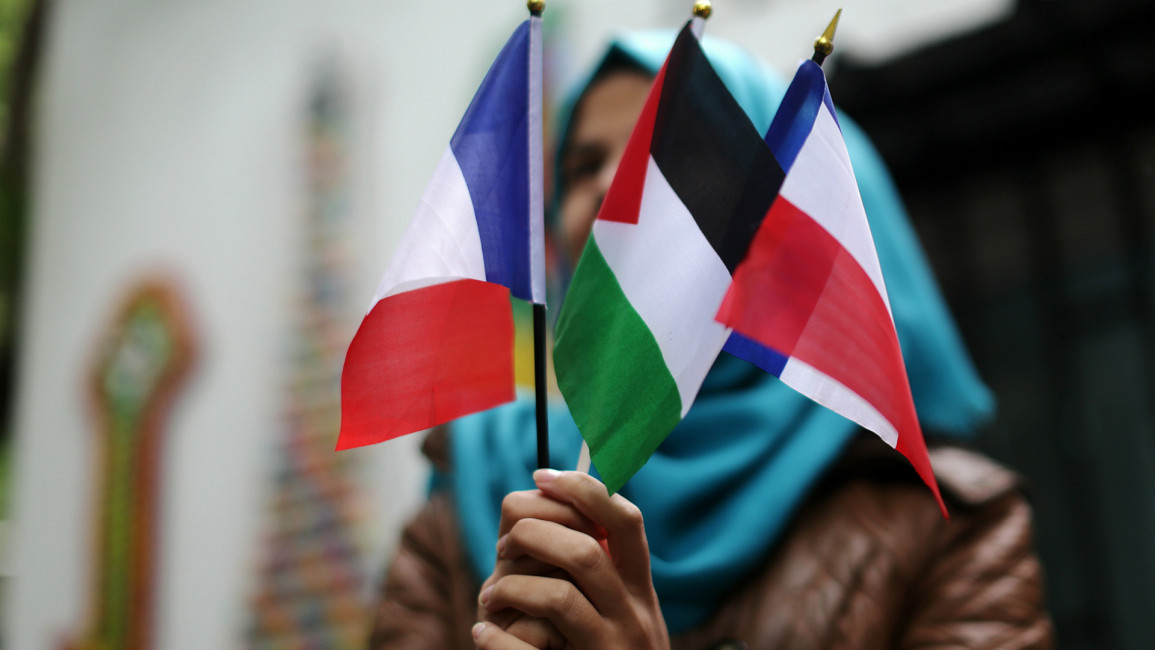Israeli ministers reject French proposals for two-state conference
The international conference is set to bring together Palestinian and Israeli parties along with their US, European and Arab partners to determine a way forward with the two state solution.
France will recognise a Palestinian state if the talks are unsuccessful, its Foreign Minister announced on Friday, a move that angered some of Israeli Prime Minister Binyamin Netanyahu's allies.
"Unequivocally, Israel will not attend a conference under threat," said Israel's transportation minister Yisrael Katz in a televised interview with Channel 2.
Similar comments were also made by Israel's Energy Minister and other Israeli officials.
"Why would the Palestinian budge on even a comma in a conference if they already known that, without making progress, they will get what they want?" an Israeli official said.
Israel said it is still considering France's invitation to the talks but its foreign minister's comments were a "mistake."
France to recognise Palestinian state
France's socialist government supports the idea of a two-state solution, but has previously argued it was too early for outright recognition of a Palestinian state.
France's Foreign Minister’s announcement comes as the Palestinians, buoyed by the successful Iran nuclear talks and the start of UN-mediated talks on Syria, have been exploring steps that could lead to a two-state solution.
These include organising an international conference and passing a UN Security Council resolution that would demand an end to illegal Israeli settlement building.
"The Palestinian leadership welcome Fabius' announcement," said Riyad Mansour, the Palestinian ambassador to the UN.
"I think the objective of the conference ... has to be to open the process that would lead to the end of the occupation and the preservation of the two-state solution," he said.
France had promised some time ago that it would recognise a Palestinian state if there was no meaningful political process that would lead to the end of occupation and an independent Palestinian state, Mansour said.
 |
If you believe in a two-state solution, then recognising the state of Palestine is an investment - Palestinian Ambassador to the UN Riyad Mansour |  |
Palestinians had wanted such recognition from France "some time ago," and that the French parliament had unanimously recommended recognising the state of Palestine, Mansour added.
"If you believe in a two-state solution, then recognising the state of Palestine is an investment," he said.
Israel's UN Mission did not immediately respond to a request for comment.
Earlier on Friday, at the UN headquarters in New York, Mansour said nuclear talks on Iran and talks on Syria, Yemen and Libya had encouraged the Palestinians to seek a broader international framework in which to settle the decades-old conflict with Israel.
"This is a new culture - and why shouldn't that spread to the Palestinian issue?" Mansour asked.
Mansour said Palestinians do not accept that in 2016 "the door is closed" because of the US presidential election in November, and that no progress can be made towards a two-state solution.
Therefore, he has been trying to gauge how ready the 15 members of the UN Security Council, the UN secretariat and other "friends" are to take the necessary steps, especially after nearly all members of the UNSC spoke out against Israeli settlement building at the last Middle East meeting.
Mansour commended UN Secretary-General Ban Ki-moon "for characterising correctly the settlements as illegal, illegitimate and a major obstacle to peace".
Israel's Prime Minister Binyamin Netanyahu said Ban's remarks justified terrorism.
Mansour said he had also raised the French idea of "a support group" of countries to promote peace, and an expansion of the quartet of Mideast mediators - the US, UN, EU and Russia.
Adopting a UN Security Council resolution would be "a signal" that the council and key world powers want to end the conflict and see an independent Palestinian state, Mansour added.
With agencies



